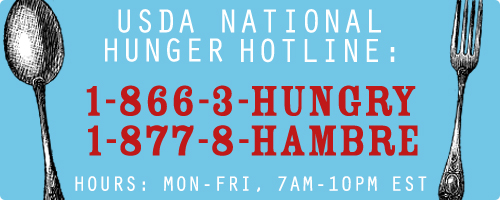Posted in Children, Hunger, Immigration
The Administration’s New Public Charge Rule: Forcing Families to Choose Between Separation or Hunger
Today the Trump administration announced that it will publish a final public charge rule, making it nearly impossible for low-income, elderly, or disabled people to legally immigrate to the Unites States, despite receiving nearly 200,000 comments opposing the cruel changes.
Appleseed stands proudly with hundreds of state, local, and national organizations and individuals across the country to oppose this cruel change. “This rule will penalize lawfully present immigrants for seeking help their families need, and essentially limit legal immigration options to the rich,” according to Appleseed Immigration Policy Attorney, Louise Pocock.
What is public charge?
Public charge is a long-standing immigration rule that allows an immigration officer to deny permanent residency or entry to the country if they believe the person is likely, in the future, to become “primarily dependent” on the government for support. This test was only applied to immigrants receiving cash assistance or long-term institutional care paid for by the government.
Public charge ONLY applies to
- People entering the country on student, employment, or family-based visas
- People seeking to adjust to lawful permanent resident status from student, employment, or family-based visas and
- Lawful permanent residents (“LPRs” AKJA “green card holders”) seeking to reenter the United States after being out of the country for six months or more.
Humanitarian categories of immigration, such as refugees, victims of trafficking, asylees and others, are exempt from the public charge test under statute.
What is the new public charge rule?
The final rule is over 800 pages long and we are working closely with our national partners to understand all the changes. Generally, it dramatically expands who could be a considered a public charge by adding several new factors to the public charge definition. The final rule expands the list of benefits that will trigger a public charge assessment to include programs such as the Supplemental Nutrition Assistance Program (SNAP AKA food stamps), housing and rental assistance such as Section 8, and most types of Medicaid.
The rule also increases the family or sponsor income required to overcome a public charge assessment, and will require immigrant determined to be a public charge to post a bond before being allowed entry. Humanitarian categories of immigrants and LPRs who are in the United States remain exempt from public charge under the new rule, per statute.
How will the new public charge rule hurt South Carolina?
Though the actual number of people subject to the new public charge test in South Carolina will be small, the impact of the “chilling effect” of this rule on other eligible people receiving benefits could be disastrous.
Providers, such a Dr. Julie Linton, a pediatrician in Greenville and co-chair of its Immigrant Health Special Interest Group of the American Academy of Pediatrics (AAP) have already seen families decide to forgo food or health assistance they are their families need because it might hurt their ability to stay in this country with their kids. Not only will families suffer without food and medical care they need, the potential economic impact of this chilling effect could cost the state millions.
What’s next?
Appleseed is creating resources for impacted community members and organizations serving impacted communities that explain the new public charge rule, who it applies to, and where families can go for help if they think public charge might impact them. The National Immigration Law Council announced that it will sue, with partners, to stop the rule from being implemented, and we will do whatever we can to support the national litigation efforts. Prior to the rule becoming final, Appleseed will create resources for impacted families explaining what the new rule is and who is exempt from it.


